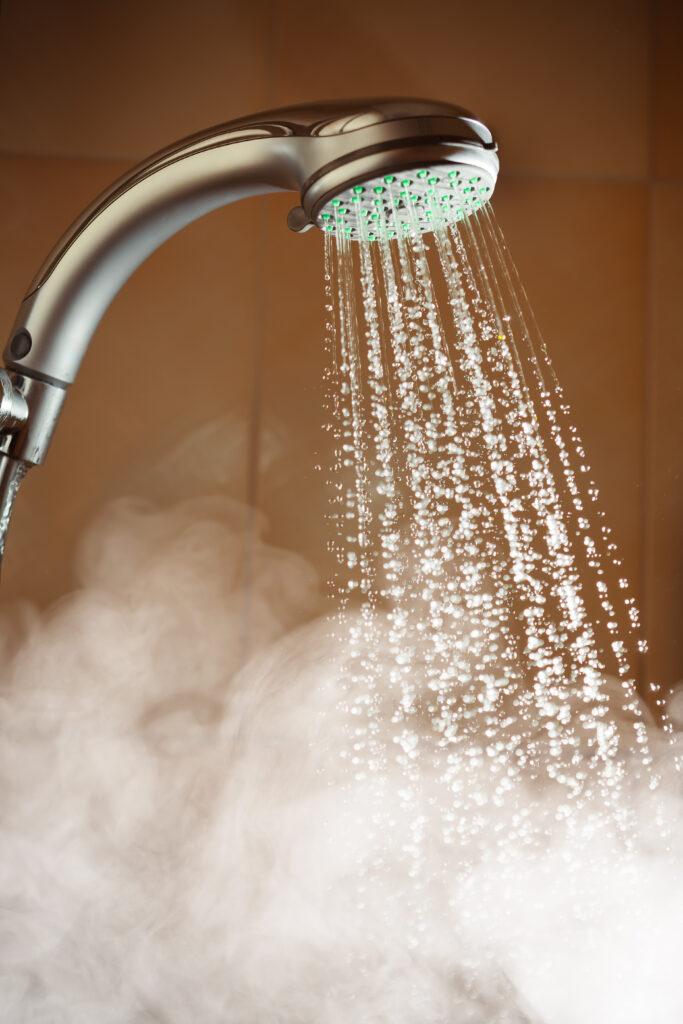We talked about how cooling your air uses plenty of energy, and another appliance in your house does as well – your hot water heater. Water is about 1,000 times more dense than air, so it makes sense that it would use more energy.
Heating water accounts for 15-25% of energy consumption in the average home, according to the U.S. Department of Energy.
While those water heaters that use gas will be a bit more efficient, a majority of water heaters use electricity. These tips on consuming less hot water will also help your energy bill as a result. Remember, we’re walking through small changes you can make that add up big over time.
Replacing Your Water Heater
This should be your last option, yet it’s also the biggest so we’ll discuss it first. If you haven’t replaced your water heater in a while, it’s worth considering making the leap.
Due to mineral deposits found in the water of most local water supplies, water heater performance deteriorates with time. Scale buildup on the heating element reduces the rate of heat transfer, greatly reducing energy efficiency.
A new water heater has none of these problems, so the upfront cost of replacing your outdated or long-used water heater will be offset by the reduction in wasted energy. While the price for a new water heater can initially be pretty high, you’ll be able to make up the difference in energy-savings over time.
Turn Down the Temp
What does a few more degrees hotter matter?
Water above 120 degrees causes standby heat loss. Hotter water stored in the tank cools faster. This means that the internal thermostat turns the unit back on more frequently, and those frequent cycles use more energy.
Water above 120 degrees also increases the accumulation of sediment in the tank, which causes corrosion and shortens the lifespan of your heater. This sediment also makes it harder to heat the water, causing the unit to run longer than it was previously.
Factory settings on most hot water heaters is at 140 degrees; reducing the temperature to 120 degrees can help save you 10-15% of the energy cost needed to heat your water each year. It can also help prevent scalding – especially for children.
Fill the Washing Machine
Wash your clothes with larger loads. Fewer loads of laundry means less hot water usage. All of the water in your clothes washer simply goes down the drain, so the fewer loads, the better.
Despite what you’ve been taught, whites and colors can be safely washed together if you wash them with cooler water. With the colder temperatures, you won’t have to worry about the colors bleeding, meaning you can save some hot water.
For any kind of lightly soiled clothing, cooler water will still get the job done. So even if you’re separating colors, you won’t need to use the hot water setting for all your loads (especially those with just your day-to-day wear to wash off).
Use Energy-Efficient Faucets
The other largest use of hot water comes through your plumbing fixtures – mostly your shower and sinks.
Investing in relatively inexpensive low-flow showerheads and faucets will reduce your hot water use, and therefore reduce the energy demand of your water heater – some people say reducing your hot water usage by up to 60%.
If you add awareness of your own use of these fixtures you can also add even more savings. Taking slightly shorter showers, or not leaving hot water running while you wash dishes or other items can go a long way towards reducing your energy usage.
Saving Energy Series: Home Appliances
Saving Energy Series: Air Conditioner
For commercial property inspections in the Dallas/Fort Worth area, including a thorough and informative home inspection report, learn more at
or request a quote for a commercial inspection at
682-351-2267



